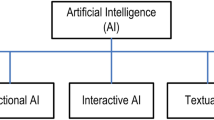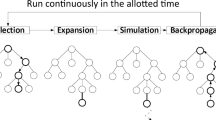Abstract
Activity conflict resolution as the core of scheduling process in activity-based modeling is a challenging step because the activity diary databases mostly report the outcome of the scheduling decisions and often fail to capture key factors influencing the resolution process itself. Consequently, most activity-based frameworks ignore modeling this process by using either predefined set of activity patterns or priority-based assumptions to schedule daily activities and prevent conflict occasions. ADAPTS is one of the few activity-based models that attempts to simulate the process of activity scheduling and resolve the conflicts as they occur. This paper advances the current rule-based conflict resolution model of ADAPTS by implementing an advanced and flexible non-linear optimization model. A set of linear optimization sub-models is then proposed that together perform the same task as the non-linear model, however they are much easier to implement and maintain, while fast to run and flexible to extend. The proposed approach defines an objective function, which aims to minimize the extent of changes in timing and duration of conflicting activities, while fitting them in the schedule. Comparing performance of the proposed model with TASHA scheduler and former resolution module of ADAPTS using CHASE scheduling process data reveals significant improvement in fitting the newly planned activities in the schedules with the minimal modifications in the timing and duration of activities.



Similar content being viewed by others
References
Arentze, T.A., Hofman, F., Timmermans, H.: Deriving rules from activity diary data: a learning algorithm and results of computer experiments. J. Geogr. Syst. 3, 325–346 (2001)
Arentze, T.A., Timmermans, H.: ALBATROSS: a learning-based transportation oriented simulation system. Transp. Res. Part B 38, 613–633 (2004)
Arentze, T.A., Timmermans, H.: Measuring the goodness-of-fit of decision-tree models of discrete and continuous activity-travel choice: methods and empirical illustration. J. Geogr. Syst. 4, 1–22 (2003)
Auld, J., Mohammadian, A., Doherty, A.T.: Analysis of activity conflict resolution strategies. Transp. Res. Rec. 2054, 10–19 (2008)
Auld, J., Mohammadian, A., Doherty, S.T.: Modeling activity conflict resolution strategies using scheduling process data. Transp. Res. Part A 43, 386–400 (2009a)
Auld, J., Mohammadian, A., Roorda, M.: Implementation of scheduling conflict resolution model in activity-scheduling system. Transp. Res. Rec. 2135, 96–105 (2009b)
Auld, J., Mohammadian, A.: Activity planning processes in the agent-based dynamic activity planning and travel scheduling (ADAPTS) model. Transp. Res. Part A 46, 1386–1403 (2012)
Auld, J., Mohammadian, A.: Efficient methodology for generating synthetic populations with multiple control levels. Transp. Res. Rec. 2175, 138–147 (2010)
Chow, J.Y., Recker, W.W.: Inverse optimization with endogenous arrival time constraints to calibrate the household activity pattern problem. Transp. Res. Part B 46(3), 463–479 (2012)
Clark, A.F., Doherty, S.T.: Activity rescheduling strategies and decision processes in day-to-day life. Transp. Res. Rec. 2134, 143–152 (2009)
Doherty, S.T., Mohammadian, A.: The validity of using activity type to structure tour-based scheduling models. Transportation 38, 45–63 (2011)
Doherty, S.T., Nemeth, E., Roorda, M., Miller, E.J.: Computerized household activity-scheduling survey for Toronto, Canada, area: design and assessment. Transp. Res. Rec. 1894, 140–149 (2004)
Fasihozaman, M., Shabanpour, R., Javanmardi, M., Mohammadian, A.: Activity scheduling conflict resolution: a reverse pairwise comparison of in-HOME and out-of-home activities. Transp. Res. Rec. (2016). doi:10.3141/2566-05
Gärling, T., Kwan, M.P., Golledge, R.G.: Computational-process modelling of household activity scheduling. Transp. Res. Part B 28, 355–364 (1994)
Joh, C.H., Doherty, S.T., Polak, J.W.: Analysis of factors affecting the frequency and type of activity schedule modification. Transp. Res. Rec. 1926, 19–25 (2005)
Lee, M.S., McNally, M.G.: Experiments with computerized self-administrative activity surveys. Transp. Res. Rec. 1752, 91–99 (2001)
Miller, E.J., Roorda, M.J.: Prototype model of household activity-travel scheduling. Transp. Res. Rec. 1831, 114–121 (2003)
Recker, W.W.: The household activity pattern problem: general formulation and solution. Transp. Res. Part B 29(1), 61–77 (1995)
Roorda, M.J., Doherty, S.T., Miller, E.J.: Operationalising household activity scheduling models, addressing assumptions and the use of new sources of behavioral data. In: Lee-Gosselin, M., Doherty, S.T. (eds.) Integrated Land-Use and Transportation Models, Behavioural Foundations, pp. 61–85. Elsevier, Oxford (2005)
Roorda, M.J., Miller, E.J.: Strategies for resolving activity scheduling conflicts: an empirical analysis. In: Timmermans, H.J.P. (ed.) Progress in Activity-Based Analysis, pp. 203–222. Elsevier, Oxford (2005)
Ruiz, T., Timmermans, H.: Changing the timing of activities in resolving scheduling conflicts. Transportation 33, 429–445 (2006)
Shabanpour, R., Javanmardi, M., Fasihozaman, M., and Mohammadian, A. Analyzing impacts of individuals’ travel behavior on air pollution: integration of a dynamic activity-based travel demand model with dynamic traffic assignment and emission models. In: Proceedings of the 95th Annual Meeting of the Transportation Research Board, Washington (2016)
Author information
Authors and Affiliations
Corresponding author
Rights and permissions
About this article
Cite this article
Javanmardi, M., Fasihozaman Langerudi, M., Shabanpour, R. et al. An optimization approach to resolve activity scheduling conflicts in ADAPTS activity-based model. Transportation 43, 1023–1039 (2016). https://doi.org/10.1007/s11116-016-9721-7
Published:
Issue Date:
DOI: https://doi.org/10.1007/s11116-016-9721-7




